Twenty-one graduate students from India – approximately 15 meant to attend Saint Louis University – were denied entry after being stopped by U.S. Immigration and Customs Enforcement for visa-related issues despite completing all of the regular visa formalities. The students are now barred from traveling outside the country for five years, their visas are canceled, they have lost nearly $10,000 and experienced what they say is insurmountable trauma.
Two students admitted to SLU, Manisha Ramakrishna and Balaji Srinivas, a couple from Bangalore, India, claimed they traveled together for 28 hours before being held at the Hartsfield-Jackson Atlanta International Airport along with the 19 other students, all bound for schools in Missouri and South Dakota.
After a long interrogation process, the couple was sent back to India with a myriad of loose ends. Without documents to appeal their barrement and visa cancellations, they are left with few options.
The couple, now jobless, say that they put their house up for a mortgage and sold their motorbike in order to attend SLU. Among other complications and poor conditions, they were threatened by their interviewers, went without food and water for 26 hours and had their luggage delayed by five or six days upon their return to India.
According to Rebecca Bahan, director of SLU’s Office of International Services, only eight students have reached out to them so far about the situation at hand, but they are unsure of how many were bound for SLU. Unless the students reach out to them directly, they said that they cannot know how many students were SLU bound.
During the couple’s separate interviews, they reported that the immigration officers accused the students of coming to the U.S. illegally under the guise of being students, despite their abundance of documents and proof.
The Arrival
When they first landed in Atlanta, the couple’s first stop was the immigration security check, where their passports were reviewed and they were asked standard arrival questions. Afterward, they were abruptly escorted to the immigration office by police, where they waited for their names to be called.
After about half an hour, Ramakrishna was called to the office.
“The first thing they asked me was, what is the purpose of this [travel]?” said Ramakrishna.
She explained that she was going to pursue her master’s in mechanical engineering at SLU. She was then asked if she had paid her tuition fees. When she answered with an honest no, the interrogation continued.
“I said no, I have not paid tuition fees,” said Ramakrishna. “The university itself told us in the pre-departure/arrival to come here and pay the fees.”
Tuition fees are often paid a few weeks after the start of the school term, which is why the couple found this line of questioning odd. Srinivas said he had even emailed SLU the day before their flight wanting to pay the fees early, but was told to wait.
According to Bahan, “1,200 students who have made it in, or 1,000 plus, and none of them paid their tuition [student fees] before coming here.”
Ramakrishna even showed the officers her loan disbursement of around $16,000.
The officer did not believe her. He questioned whether she was truly going to St. Louis as a student or to illegally work. They examined her I-20 form, which proves legal enrollment in a program of study in the U.S., and they continued to ask her more questions about why she chose SLU.
As she continued to answer his questions, officers accused her of lying. Finally, she was asked to return to the waiting room.
“After the entire conversation they had told us ‘you people come here to just work, not study’,” said Ramakrishna. “Even though we had the entire proof… like our admit letter, our I-20’s, we had even bought a house to scale up for accommodation and showed the lease agreement stating that we will be staying here and paying money for it.”
Still, the officer continued to insist she and the other students were coming to illegally work.
Shortly after, Srinivas was called into the office and asked the same questions.
Srinivas also talked about the scholarship he had received of $5,500 and an on-campus job paying $1,000. He shared his dreams of becoming a pilot and how SLU has a good aviation program.
“He’s like, ‘So you’re telling me that St. Louis is the only university in the entire universe which offers this service?’” said Srinivas. He continued to explain that no, he had applied to other schools as well, but this was his top choice.
This was when the officer asked for his phone.
“I was just shocked at this moment. Like a phone, why would he ask for my phone?” said Srinivas.
He was asked to unlock the phone and login to his WhatsApp, Instagram and other communication apps. The officer told him that he must only communicate the truth, and any lies would be used against him.
Srinivas was handed a slip of paper stating officers were permitted to check his phone, laptop and any documents they have – and that they have to comply.
Afterward, he was asked to wait in a different room as they searched his phone.
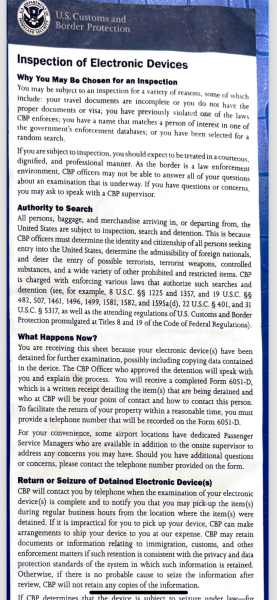
He said that inside this room he could see out into the original waiting room but they could not see into his room. The same things were happening to other students who were there too – they were called in, sent out and had their phones taken away as well, Srinivas said.
After waiting for about half an hour to an hour, he was called back in.
“While sitting there,” said Srinivas, “He was staring at me. Like whenever I would look at him randomly he was always staring at me. You know? Like these big intimidating stares.”
Srinivas said he felt hope for a moment, despite the intimidation, as he had noticed other students getting their passports handed back to them with a white piece of paper.
“He puts a sheet of paper in front of me, which states that they feel I am not a legitimate student trying to enter the U.S. and that they feel the documents I have are not legal proof,” he said.
The Formal Interrogation
He then faced an interrogation interview.
“When I saw that, I was fully and completely shocked, like I’m literally not able to feel anything in my body. I’m like what? Is this even real?” said Srinivas after seeing that he may be barred for five years.
When he asked what was happening, the officer told him that he was the one asking questions, not Srinivas.
Srinivas was asked to raise his right hand and repeat, “Whatever I speak shall be the truth, and only be the truth. I shall not lie with any sort of forms.”
In addition to questions about his personal life, the officer then began to ask about a consultancy group chat they have on their WhatsApp called Educates IDP. IDP is an education consultancy group in India that guides students with their studies abroad, including admission and visa process.
The officer began to ask about the group chat, specifically about a document shared in the chat of possible questions that could be asked during a visa interview. Srinivas explained to The University News that he wanted to be well-prepared.
“And then he’s like, ‘Do you know it’s against immigration law to be coached for any interviews?’” said Srinivas. Except, the questions provided by IDP were available on many other platforms such as Google, Quora, YouTube or articles published by students sharing their experiences. Bahan confirmed they provide similar questions for their international students as well before they come.
They began to question him again as to why he hadn’t paid the university fees.
He told the officer that he paid a $200 installment deposit, but the officer stated that he could not accept this.
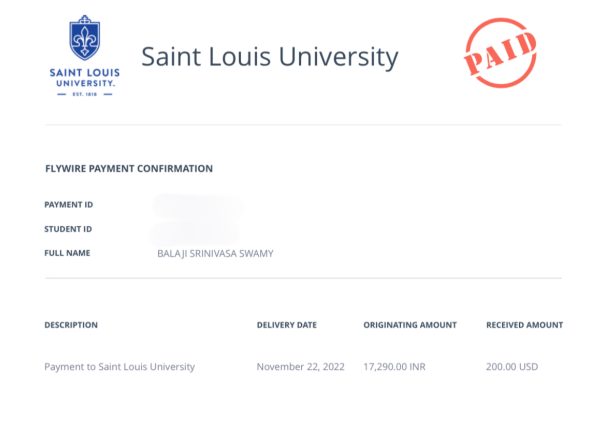
Then the officer asked him to leave the room, but when Srinivas pleaded to talk with them more, they began to threaten him with force or a citation.
The couple believes that the officers did not find their interview and documents satisfactory enough.
Ramakrishna pulled out a large file of documents during a virtual interview. “We have this entire file,” she said. “All of these are documents which we had carried to the U.S., though he didn’t even care to check one of these documents and he stated that we are not just students.”
After he returned to the waiting room, they waited for about four or five hours more before Ramakrishna was called back into the office.
Ramakrishna stated her experience was similar. She had to raise her right hand and pledge to not lie. Her questions were the same as Srinivas, but something different happened – they ruined her bachelor’s degree certificate.
She said that the officer was curious to see what the certificate looked like in her country.. Once he gave it back to her, upon request, it was folded in half. This can ruin the credibility of the document.
Later in the interview, the officer asked for her I-20, again.
“I told him I already gave him my I-20,” said Ramakrishna. “He said, ‘I lost it, give me another one’, so that’s how careless they were.”
Luckily, she came prepared and had another photo copy in her file, but the officer lost the signed original she had.
She said the officer also questioned why she had a LinkedIn account.
“I was literally surprised, why was he linking my LinkedIn account to my immigration?” said Ramakrishna.
Before sending her back to the waiting room, Ramakrishna asked if he planned on sending them back to India – he replied yes.
She asked the officer to inform her parents, since he had confiscated her phone. Ramakrishna said it had been a long time since she had contacted her parents, and felt that her parents should know what was happening. She even asked for a single phone call with them, to which the officer replied, ‘no’.
She said the officer told her he would message her mom for her on WhatsApp, but she later found that he never did.
She went back to sit with Srinivas, and they waited for about three hours before being called again. This time, with even worse news – their visas had been canceled and they were barred from the country for five years.
“We were literally so shocked. We started sobbing so badly,” said Ramakrishna. “It was, I guess, a nightmare for us.”
After they heard the news, they went back to the waiting room. Later, Ramakrishna was called back alone.
Her body and belongings were searched before being moved to a small cubicle cell where she would be held with one other roommate, still without a phone.
In the cell, there was an open toilet with no handle to flush. If she wanted to flush, she would have to ask a guard from the outside to do so for her. Above the toilet was a camera as well, she said.
“We had to sleep on the floor with a very small thin mattress, like a baby-sized mattress, and they had given a very thin aluminum foil type like paper-thin, to cover us in the cold,” said Ramakrishna.
With minimal resources, she explained they had no access to food or water until much later.
“You are not provided with any food or water, or any kind of basic human needs,” said Ramakrishna.
Later on, Srinivas was the last to be called back to the office. He noted that the time at this point was about 3:30 a.m.
The officers took his biometrics and DNA with a swab of his cheek.
When the officers explained the situation to Srinivas, he pleaded with them to make a change.
“Then I requested to him to please reduce it, like I begged them, because it was the last hope I had to change their mindset.”
The officers told him to save his energy and not waste their time. He was then asked to sign off on three statements.
The statements: one declaring he spoke the truth, the second to admit he broke the immigration law and the last was an agreement to a five-year ban.
According to Srinivas, the officer then said, “I should give you a lifetime ban for being coached for an interview. Be happy that I’m not giving you a lifetime ban.”
He was then given five seconds to sign, and if he didn’t, the officer would give him a lifetime ban.
“He forced me to sign it basically,” said Srinivas. “We didn’t want to sign. We only wanted to sign for the first one.”
Once he had signed, the officer led him down a narrow hallway where he could see all the cells. That is when he saw Manisha’s bag, and realized she wasn’t sent on a flight back to India right away.
He was taken to a room where eight men were. Before he was allowed into the room, the officer frisked his body and removed some laces, jewelry and anything potentially sharp.
The men in the room were all eating food when he entered the room. He asked the officer for food, and this was the first time he had eaten or drank anything in about 26 hours.
In the room, there were only five beds, a table, chair and a sofa.
“So I had no other option but to sleep on the cold floor and I had to cover myself with like a manufactured or thin aluminum foil. It is as thin as a gift wrapping paper that when I rotated it with my hand or just if I poke it there will be a hole in it.”
For Ramakrishna, after she had been in her cell for many hours, she reached out to one of the officers outside the cell. She asked the officer if she could speak to their senior officer. Around 1 a.m. during their shift change, the senior officer followed up and came to her cell.
“I literally went on my knees, like I kneeled down in front of him, saying ‘could you please rethink this case’,” said Ramakrishna. “Because it is literally our dream.
The officer told her to get an immigration lawyer to challenge the barment in court. He also said that he would re-check their papers the following day before he signed them, but the following day they heard no updates on their case.
The Return
After a few more hours, the couple boarded their flight home together and waited in a room near some of the officers they encountered the night before.
They overhead the officers speaking loudly.
“They told [them] that the superior officer had sent them to a meeting telling them they did a great job last night, and you deserve a pat on the back,” said Srinivas.
They also mentioned something about reaching a head count for the operation.
“So basically we feel that they wanted to reach a number or target of people they were sending back to their country,” said Srinivas.
Later, the couple boarded their planes back. This was when their phones were finally returned to them. At each airport they were the last to board and were escorted by police the entire way.
“It was super duper embarrassing,” said Srinivas. “People are giving us mean stares like, okay, have you done something wrong?”
When they reached the airport in Bangalore, India, they were escorted by some personnel to the immigration center. This is when the personnel explained that the students were “deported.”
“I am like, what? How can they say we are deported? We were in a no-man’s land, we never entered the U.S. in the first place,” said Srinivas.
To be deported, one must have already entered the country. In the case of these students, they never actually entered, so they were denied entry, but according to their papers and the officers, they were deported.
The superior immigration officer in India went to look at their case. Whenever the couple was sent back, they were handed an envelope with only their passport in it. The students were not aware that there was supposed to be another document in there.
According to Srinivas, the officer said, “In my 35 years of experience, I’ve never seen this kind of thing where the U.S. doesn’t give any documents supporting why they were sent back.”
They were supposed to receive a packet of around 10 to 15 pages containing the introduction interview and the reasons for why they were sent back. Since the documents were not there, the personnel had to start calling other centers inquiring as to why the documents were missing.
The students received a stamp on their passports as deportees sent back to India. This also puts a black mark on them in the system that will follow them for the rest of their lives.
“It might affect our careers, or any future prospects we have. So that was, again, even more devastating to hear and sad,” said Srinivas.
Without the documentation stating why they were “deported”, they can’t do anything to change these unfortunate circumstances.
Looking Ahead
The couple sent out emails to embassies in the U.S. as well as the Indian embassy in Atlanta, but they have yet to receive a response. They also reached out to consulates in India about their visa, and have received no response.
The couple is unsure as to the official reason for their denial of entry, but they believe it had to do with their IDP chat, not paying their student fees and that the officers didn’t believe they are real students.
They said that they have reached out to Saint Louis University, but have heard little back and as of now, have not had any additional updates from SLU.
“I have shed so many tears and I’ve literally broken down to the maximum extent I’ve ever felt or done,” said Srinivas.
According to Bahan and Luchen Li, the associate vice president for global engagement, the fact that Customs and Border Patrol did not contact SLU was unusual.
“If the student is stopped at the border, the government calls us and they want to know like, ‘hey, we have a student here, we want to make sure that they are bonafide and we want to check their documents,’ but in these cases, no one from Customs and Border Patrol has ever contacted us,” said Bahan.
Li and Bahan said they are on the receiving end of this. Since no one from Customs and Border Patrol contacted them, there is little they can do to figure out what happened.
They said that because this is a government decision, there is little that SLU can do other than reach out to advocation channels. They bring up the issue to a particular channel called Issue Net.
“It’s kind of our body of support in the United States who works with international education. Just to let other schools know, have you been experiencing this? What have you been doing? Is this a trend that we’re seeing?” said Bahan.
“We also have a policy at the university for those students whose visa coming to the U.S. are denied, then we refund them their deposit,” said Li.
Other than that, the best SLU can do is recommend that they apply for a new visa and try again.
“This has been our first time to encounter that a student has not been allowed into the country, like I said before, if there’s a question, they call us,” said Bahan.
The University urges those who were a part of this group to email them at [email protected] for additional help.
“…We don’t understand [and] the students don’t understand why they were barred entry,” said Bahan. “So pushing that after an advocacy group would be helpful.”
The students feel they were stripped of their dreams, and now wait for further help.
“Before it happened, we were really excited to come to the U.S. We thought that we would be pursuing our dreams,” said Ramarkrishna.


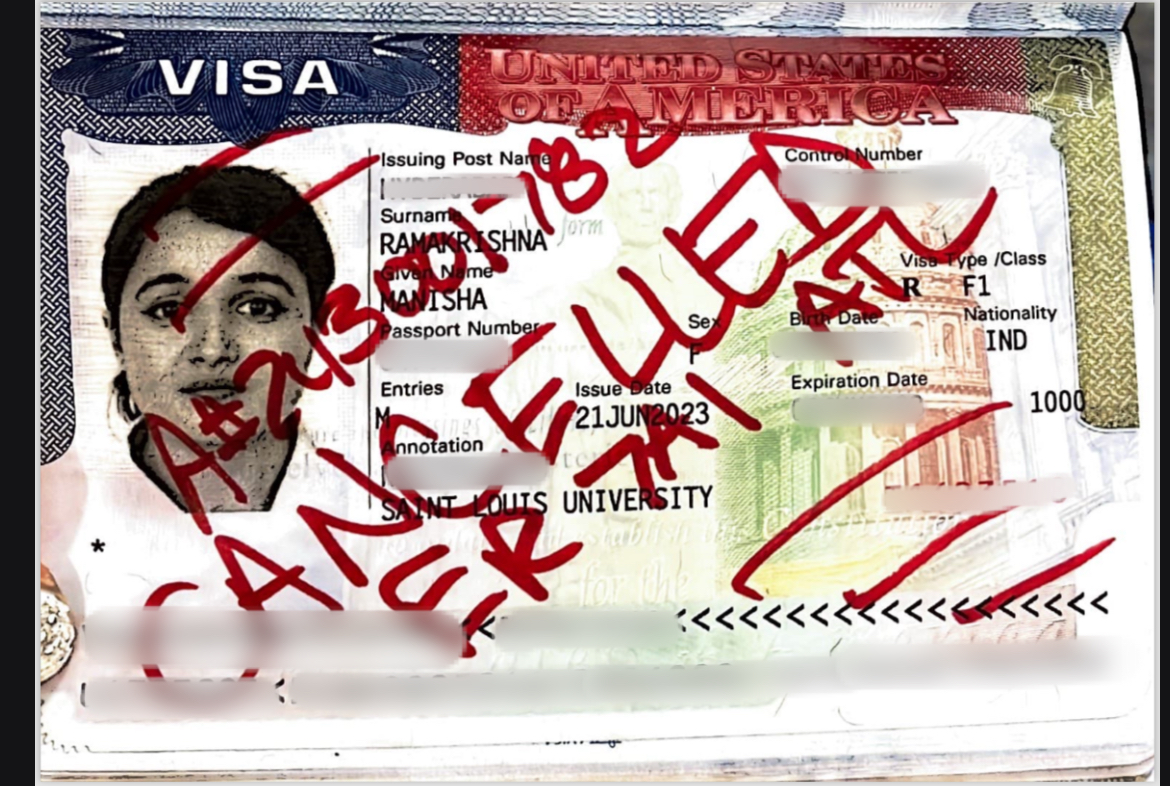



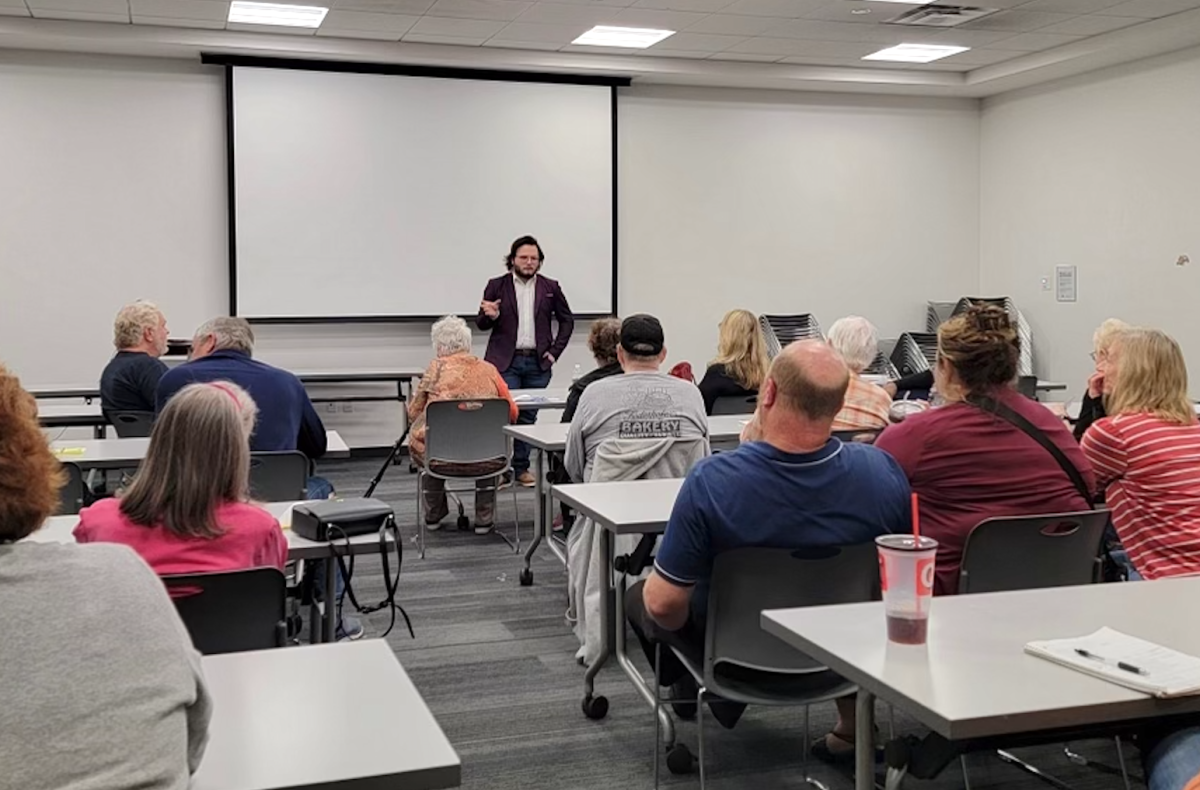
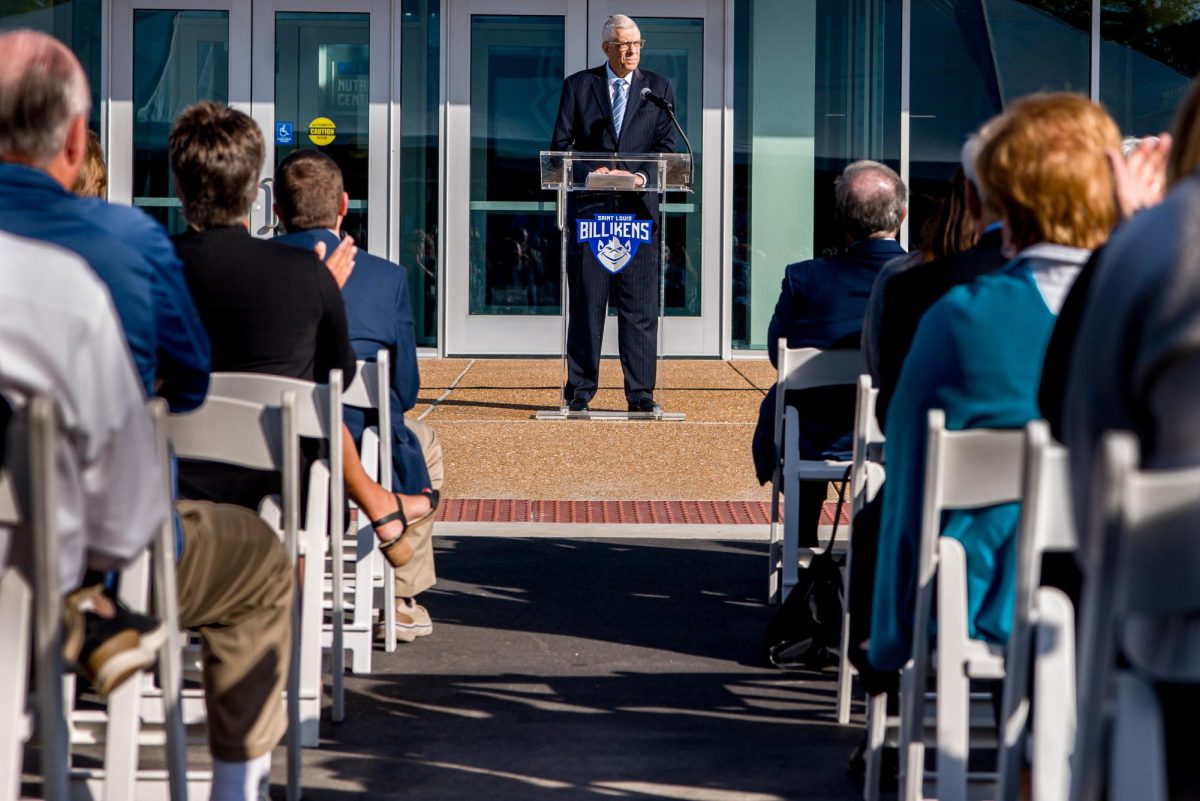

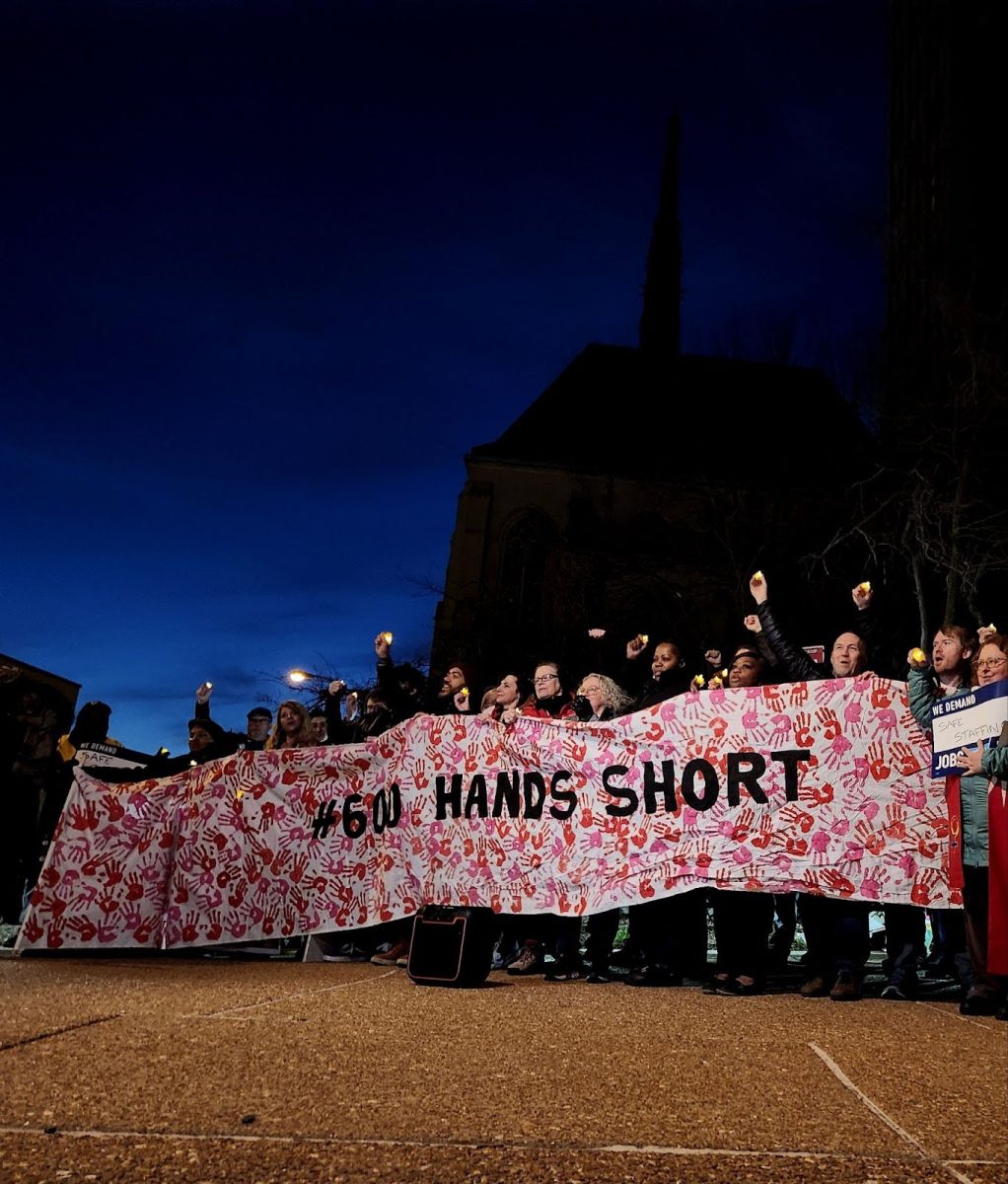
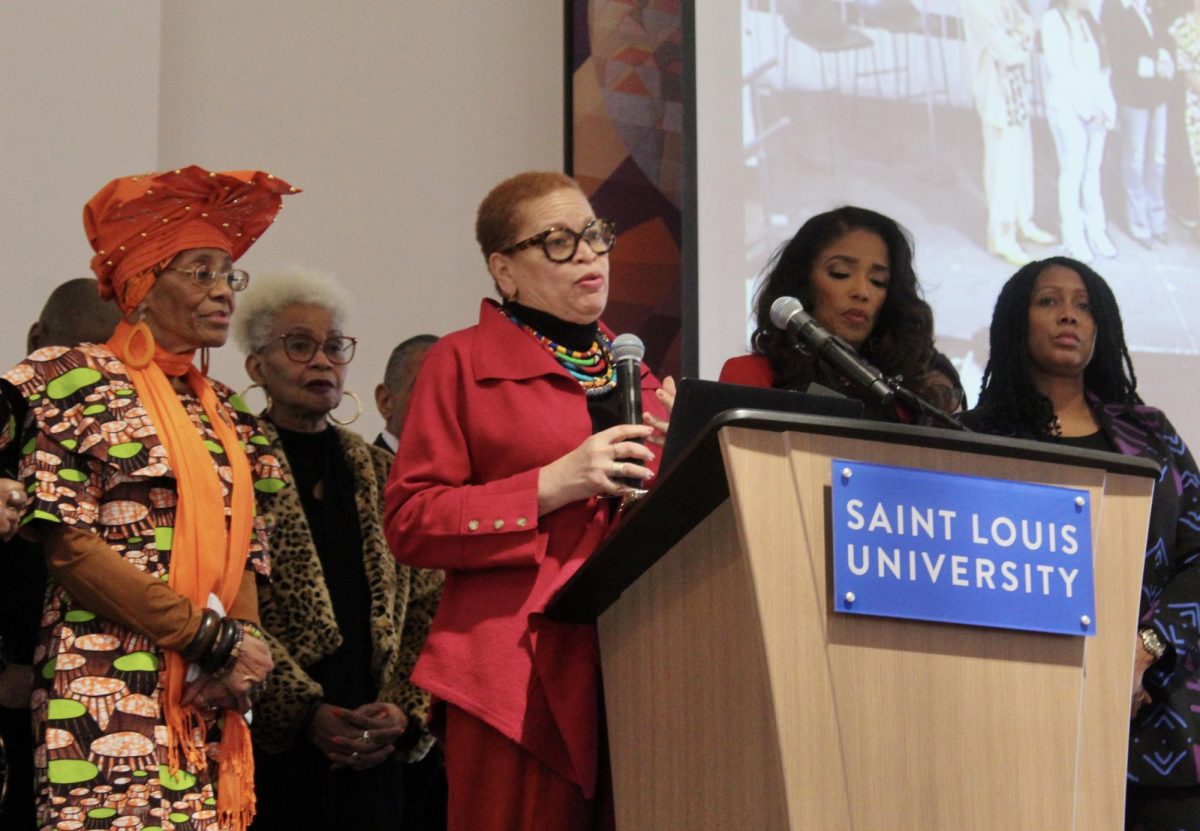
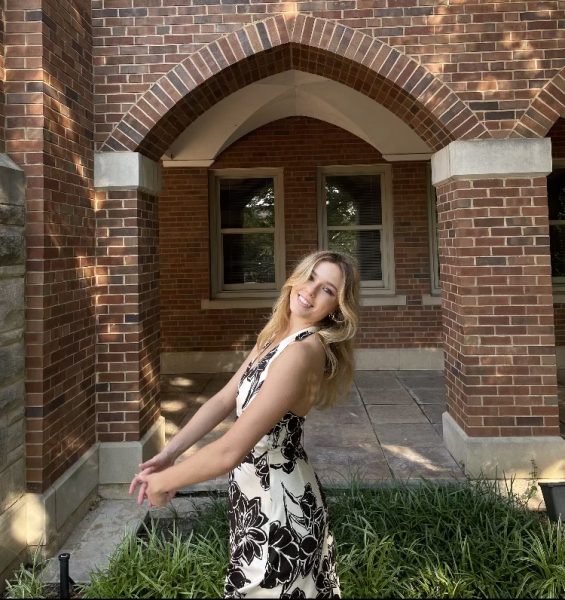
B • Jan 9, 2024 at 8:46 pm
“She explained that she was going to pursue her master’s in mechanical engineering at SLU.” Does SLU offer a master’s degree in mechanical engineering? When I looked on line all I found was an undergraduate degree in mechanical engineering.
adviser • Jan 10, 2024 at 2:47 pm
https://www.slu.edu/science-and-engineering/academics/graduate-programs/engineering-ms.php
S • Sep 30, 2023 at 9:53 pm
Why isn’t SLU doing more to help these students appeal the immigration decision? It says a lot that all they have done is given a refund and been like well reapply. You would think a university would care a little bit more about the students, even if it is just applying pressure on the government to give an explanation or fix their mess up. Their response would not make me want to come there as an international student.